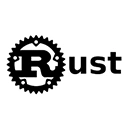In Rust, you can implement methods for both structs and enums using the impl keyword. This allows you to define functions that operate on instances of these types, encapsulating behavior and making your code more organized and modular.
1. Implementing Methods for Structs
To implement methods for a struct, you create an impl block associated with the struct. Inside this block, you can define methods that take &self as a parameter to access the instance's fields.
Example of Struct Methods
struct Rectangle {
width: u32,
height: u32,
}
impl Rectangle {
// Method to calculate the area of the rectangle
fn area(&self) -> u32 {
self.width * self.height
}
// Method to check if the rectangle is a square
fn is_square(&self) -> bool {
self.width == self.height
}
}
fn main() {
let rect = Rectangle {
width: 30,
height: 50,
};
println!("The area of the rectangle is {} square pixels.", rect.area());
println!("Is the rectangle a square? {}", rect.is_square());
}
Explanation of the Example
- In this example, we define a struct named
Rectanglewith fieldswidthandheight. - We create an
implblock forRectangle, where we define two methods:areaandis_square. - The
areamethod calculates the area of the rectangle, while theis_squaremethod checks if the rectangle is a square. - In the
mainfunction, we create an instance ofRectangleand call both methods to print the area and whether it is a square.
2. Implementing Methods for Enums
Similar to structs, you can implement methods for enums using an impl block. This allows you to define behavior specific to the enum variants.
Example of Enum Methods
enum Shape {
Circle(f64), // Circle with radius
Rectangle(f64, f64), // Rectangle with width and height
}
impl Shape {
// Method to calculate the area of the shape
fn area(&self) -> f64 {
match self {
Shape::Circle(radius) => std::f64::consts::PI * radius * radius,
Shape::Rectangle(width, height) => width * height,
}
}
}
fn main() {
let circle = Shape::Circle(5.0);
let rectangle = Shape::Rectangle(4.0, 6.0);
println!("Area of the circle: {}", circle.area());
println!("Area of the rectangle: {}", rectangle.area());
}
Explanation of the Example
- In this example, we define an enum named
Shapewith two variants:CircleandRectangle. - We create an
implblock forShape, where we define a method namedarea. - The
areamethod uses amatchstatement to determine which variant it is and calculates the area accordingly. - In the
mainfunction, we create instances ofShapefor a circle and a rectangle, and then we print their areas using theareamethod.
3. Associated Functions
In addition to methods, you can also define associated functions within an impl block. These functions do not take &self as a parameter and can be called directly on the type itself.
Example of Associated Functions
impl Rectangle {
// Associated function to create a new Rectangle
fn new(width: u32, height: u32) -> Rectangle {
Rectangle { width, height }
}
}
fn main() {
let rect = Rectangle::new(30, 50);
println!("The area of the rectangle is {} square pixels.", rect.area());
}
Explanation of the Example
- In this example, we add an associated function named
newto theRectanglestruct. - This function takes
widthandheightas parameters and returns a new instance ofRectangle. - In the
mainfunction, we create a new rectangle using thenewassociated function and then print its area.
4. Benefits of Implementing Methods
Implementing methods for structs and enums provides several advantages:
- Encapsulation: Methods allow you to encapsulate behavior related to a type, making your code more organized.
- Reusability: You can reuse methods across different instances of a struct or enum, promoting code reuse.
- Clarity: Methods can make your code more readable by providing meaningful names for operations related to a type.
5. Conclusion
Implementing methods for structs and enums in Rust is a straightforward process that enhances the functionality and organization of your code. By using the impl keyword, you can define both instance methods and associated functions, allowing for a clean and modular approach to programming in Rust.

